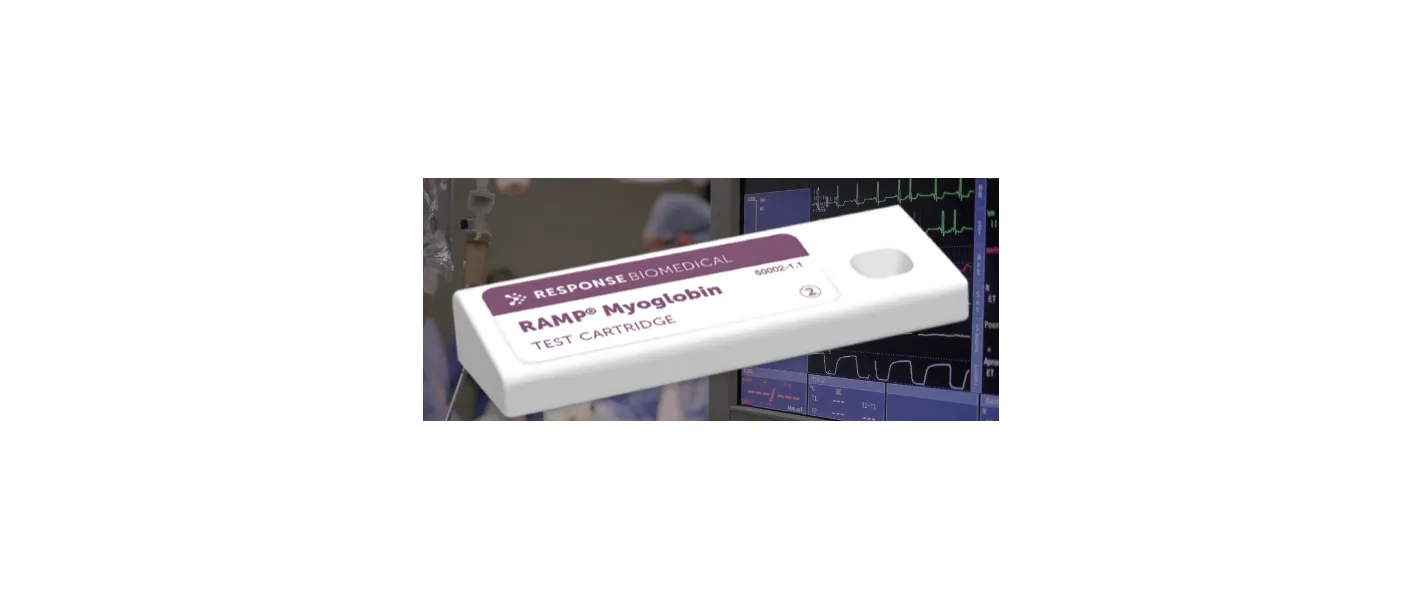- Fast delivery
- Email notifications
- Different payment methods
- Competitive prices
Myoglobin is an intracellular heme protein, which is present in all types of muscle cells, including the heart. It has a molecular weight of approximately 17.8 kDa. Following myocardial injury or cellular necrosis, myoglobin is quickly released into the bloodstream. Although elevated levels of myoglobin may be detected as early as 1 hour after an Acute Myocardial Infarction (AMI), myoglobin is most beneficial as a cardiac marker when measured 2–12 hours following an AMI. Myoglobin levels peak at 6 to 9 hours post infarction and return to normal within 24 to 36 hours [1,2]. Sequential negative myoglobin test results are often used to rule out AMI. A doubling of the myoglobin level within 1 to 2 hours provides strong evidence for AMI, even when the results are still in the normal range [3].
Myoglobin levels may be elevated as a result of muscle damage from trauma, surgery, exercise, and ischemia. Elevations may also be seen with degenerative diseases of the muscle. In the absence of conditions known to cause muscle damage, and in light of the patients’ medical history, an elevated myoglobin level could indicate myocardial injury.
No reviews found











